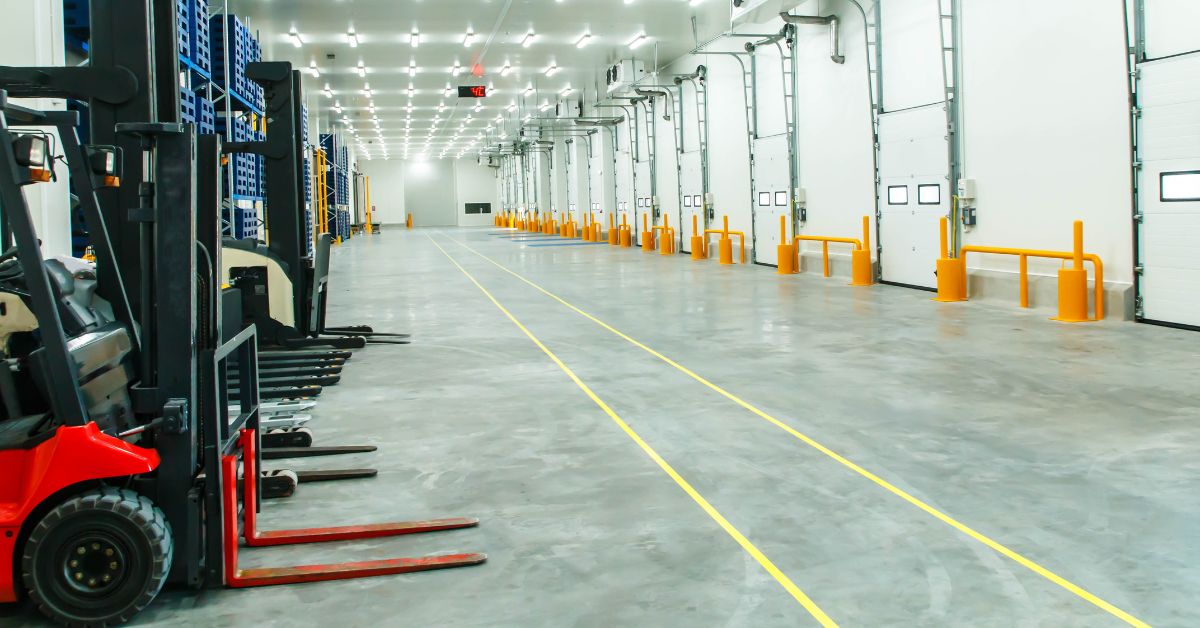The term cold chain identifies the process by which a constant temperature, usually below 18° C, is maintained in order to enable the conservation of transported goods.
It is a process that mainly concerns the food (and large-scale retail trade), pharmaceutical and chemical industries and affects all stages, starting from production and ending with the display or storage of the product.
In light of the importance for everyday life of the goods that follow this chain, the importance of the study and development of products that can guarantee the required performance for cold stores and compartmentalised rooms is therefore evident.
Furthermore, with regard to the issue of environmental sustainability, it is worth emphasising how high efficiency of the overall system leads to a consequent decrease in energy consumption for maintaining low temperatures, thus reducing the production and emission of CO2 into the atmosphere.
Sandwich Panels for Cold Solutions
Isopan has therefore developed specific products dedicated to Cold Solutions, such as the Isofrozen and Isofrozen HT family of panels, high-performance insulation panels suitable for meeting the needs of the cold chain.
These panels are characterised by:
- polyurethane foam insulation, which allows the achievement of extremely high thermal transmittance values of the panel at a value of 0.27 W/m2 K for the 80 mm panel, up to 0.09 W/m2 K for the 240 mm panel;
- can be used both vertically, as an infill element, and horizontally, as a roofing element, giving the possibility of creating compartmentalised rooms and cold rooms of any desired size and shape;
- one of the highest fire reaction classes, 'B-s1,d0' in the case of panels with LEAF formulation, 'B-s2,d0' in the case of panels with traditional PIR formulation;
fire resistance EI30 for standard panels, EI60 for the 200 mm thick panel;
thickness 80, 100, 120, 150 and 200 mm;
- length up to maximum transportable;
- option to choose the type of joint in order to increase the panel's performance with regard to airtightness.
LEAF technology serving the cold chain
The construction industry is constantly looking for solutions, approaches and technologies that can reduce the environmental impact of the entire process as much as possible, starting from the sourcing of resources through to the decommissioning, demolition or recovery stage at the end of the building's life.
Isopan, interested in proposing state-of-the-art solutions in the field of design and construction, has therefore developed the technology called Leaf as part of its studies on insulating sandwich panels.
Panels equipped with this technology are characterised by excellent thermal insulation properties thanks to the polyurethane foam, which provides an improved
performance compared to similar solutions on the market, with a reduction in heat loss of around 20%.
This higher level of performance allows, for the same thermal transmittance, thinner panels to be used, which reduces weight and facilitates the transport and assembly of the elements.
In addition, the Leaf certification also guarantees the achievement of high standards with respect to the fire reaction class, 'B-s1,d0': the 's1' performance in fact attests to the lack of smoke formation following exposure of the insulating polyurethane foam to fire.
Finally, Halogen free FR Technology is also used, which consists of replacing traditional flame retardant products with others that are free of halogenated elements and therefore not harmful if released into the atmosphere following a fire.


